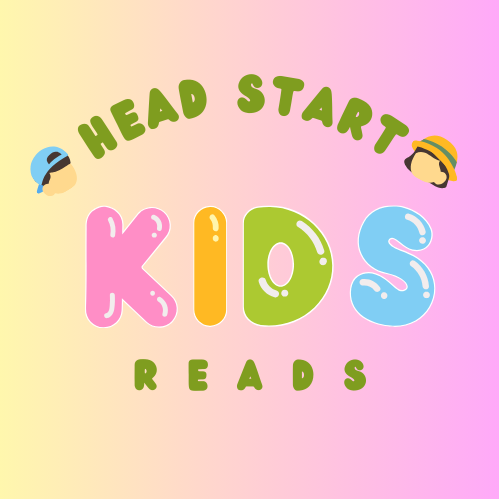Active parenting plays a crucial role in developing a child’s reading skills. With the increasing importance of literacy in today’s world, parents have a unique opportunity to influence and boost their child’s reading abilities from an early age. By actively engaging in your child’s learning process, you create a nurturing environment that encourages not only reading but also a lifelong love of learning.
This article will explore how active parenting can significantly boost your child’s reading skills and provide actionable tips for creating a reading-rich environment.
1. The Importance of Active Parenting in Literacy Development
Active parenting involves being consistently involved in your child’s day-to-day learning activities, providing guidance, and being a role model. Research shows that children who grow up in households where reading is encouraged tend to develop stronger literacy skills than those who do not.
By actively participating in your child’s reading journey, you:
- Enhance Vocabulary Development: Reading with your child exposes them to a wide range of vocabulary, boosting their language skills and comprehension.
- Strengthen Cognitive Skills: Active involvement in reading helps children develop critical thinking, memory retention, and problem-solving abilities.
- Instill a Love for Reading: Children are more likely to enjoy reading when they share the experience with their parents.
2. Create a Reading-Friendly Environment at Home
One of the first steps in active parenting is setting up a home environment that promotes reading. A reading-friendly home encourages curiosity, exploration, and a love for books.
How to Create a Reading-Friendly Environment:
- Designate a Cozy Reading Space: Create a comfortable reading nook with soft cushions, adequate lighting, and easy access to books. Make it a quiet and inviting place where your child can focus.
- Stock Up on Books: Make a variety of age-appropriate books available. Rotate them frequently to keep things fresh and exciting for your child.
- Use Visuals: Display posters, alphabet charts, or reading progress charts to encourage reading goals and motivate your child.
A dedicated space shows your child that reading is a valued activity, and it will help establish positive reading habits early on.
3. Be a Reading Role Model
Children learn by observing the behavior of their parents. When they see you reading regularly, they are more likely to develop similar habits.
Ways to Model Good Reading Habits:
- Read in Front of Your Child: Make sure your child sees you reading books, newspapers, or magazines. Talk about what you’re reading and why you enjoy it.
- Share Books Together: Make time to read aloud with your child daily. Whether it’s a bedtime story or a shared reading time during the day, showing enthusiasm for reading will encourage your child to do the same.
- Discuss Books: Engage your child in conversations about the stories you’ve read together. Ask them open-ended questions, such as “What do you think will happen next?” or “What was your favorite part?”
By modeling an active interest in reading, you help set the foundation for your child’s own enthusiasm for books and learning.
4. Practice Shared Reading
Shared reading is a highly effective way for parents to boost their child’s reading skills. It involves reading a book together, discussing the content, and engaging with the text in ways that build comprehension and critical thinking.
Benefits of Shared Reading:
- Improves Comprehension: Children gain a deeper understanding of the story when they read aloud with a parent who can help explain difficult words or concepts.
- Enhances Bonding: Reading together strengthens the emotional bond between parent and child, making reading a positive, shared experience.
- Encourages Engagement: Asking questions during and after reading encourages children to think critically and become more engaged with the material.
Incorporating shared reading into your daily routine can greatly improve your child’s reading fluency and comprehension.
Read Also
How to Keep Your Child Engaged with a Regular Reading Routine?
5. Introduce a Wide Variety of Books
Introducing your child to different types of books can stimulate their curiosity and foster a love of reading. Exposing children to various genres and formats helps them build a more diverse set of literacy skills.
Types of Books to Include:
- Fiction and Non-Fiction: Mix fiction stories with non-fiction topics to broaden your child’s knowledge and interests.
- Picture Books and Chapter Books: For younger readers, picture books help with vocabulary development, while chapter books challenge more advanced readers to think critically about plot and character development.
- Poetry and Rhyming Books: These types of books are excellent for improving phonemic awareness, which is critical for early reading skills.
Offering a wide variety of reading materials keeps your child engaged and helps prevent boredom.
6. Make Reading Interactive
One key component of active parenting is to make the reading experience interactive and engaging. Children are more likely to stay focused and enjoy reading when it’s fun and hands-on.
How to Make Reading Interactive:
- Act Out Stories: Encourage your child to act out scenes from the book or give voices to different characters.
- Use Props: Incorporate props like stuffed animals or toys to bring stories to life and help your child visualize the narrative.
- Ask Questions: While reading, ask your child questions to ensure they understand the story. Encourage them to predict what happens next or explain why a character made a certain choice.
Interactive reading not only improves comprehension but also helps your child retain information more effectively.
7. Set Reading Goals and Celebrate Progress
Setting achievable reading goals motivates children to stay engaged with their reading journey. By celebrating milestones, you reinforce the importance of reading while making it a rewarding experience.
Setting Reading Goals:
- Daily Reading Time: Start by setting a specific time each day for reading. Even 15-20 minutes of focused reading time can make a big difference.
- Book Count Goals: Challenge your child to read a certain number of books each week or month. Keep a chart or log to track their progress.
- Reward System: Celebrate milestones with small rewards, like stickers or special outings. Positive reinforcement helps encourage your child to stay consistent with their reading habits.
Setting and achieving goals helps build your child’s confidence and sense of accomplishment, which translates into improved reading skills.
8. Encourage a Growth Mindset
Active parenting also involves fostering a growth mindset in your child, which means encouraging them to view challenges in reading as opportunities for growth rather than setbacks.
How to Foster a Growth Mindset:
- Praise Effort, Not Results: Instead of focusing solely on correct answers, praise your child for their effort and persistence, even if they make mistakes.
- Discuss Struggles: Let your child know that it’s okay to find certain words or concepts challenging. Explain that struggling is part of the learning process.
- Celebrate Improvements: Highlight improvements over time, showing your child that practice leads to progress.
Cultivating a growth mindset in your child helps them view reading as a positive, rewarding challenge, rather than a difficult task to avoid.
9. Incorporate Technology to Enhance Reading
In today’s digital age, technology can be an asset in boosting your child’s reading skills. There are many educational apps, audiobooks, and eBooks designed to make reading engaging and interactive.
Ways to Use Technology in Reading:
- Reading Apps: There are various apps that can help improve your child’s reading skills through fun games and exercises.
- Audiobooks: Listening to audiobooks can improve comprehension and expose children to new vocabulary, especially for those who are auditory learners.
- eBooks: If your child is more interested in digital devices, eBooks can offer an alternative to traditional paper books while still promoting reading skills.
The key is to use technology as a supplement, not a replacement for traditional reading activities.
Conclusion: Boost Your Child’s Reading Skills with Active Parenting
Active parenting is a powerful tool in helping your child develop strong reading skills. By creating a reading-friendly environment, modeling good reading habits, and using interactive techniques, you can foster a love of reading that will last a lifetime. Establishing goals, making reading fun, and offering consistent support will ensure that your child’s literacy development flourishes.
For parents looking for additional guidance on how to help their children excel in reading, the Reading Head Start Program by Sarah Shepard offers a structured approach to teaching children to read. This program is specifically designed to provide parents with tools and strategies to boost their child’s reading abilities and foster long-term literacy success.


